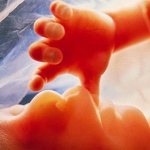Written by Dom Pius Mary Noonan, O.S.B.
30th November 2024
Many would be familiar with Chesterton’s reference to the ‘democracy of the dead’. Few would be able to explain exactly what he was referring to. No, he was not referring to the names of deceased persons still being on the voting registrar! Rather, he was writing in support of Tradition. He meant that we must refuse to think that we are in a better position than our ancestors to say what is important in our religion. Ultimately, it is about the continuation of the Church, not only in space but also in time, what some authors refer to as the synchronic dimension of the faith as opposed to its diachronic dimension. In other words, it is not enough to be in communion with all the Catholics on the planet at a given time, for they are a tiny minority compared with those who have gone before us. Much more important is to be in communion with the Catholics of all times. Here is what he actually wrote:
“Tradition means giving votes to the most obscure of all classes, our ancestors. It is the democracy of the dead. Tradition refuses to submit to the small and arrogant oligarchy of those who merely happen to be walking about. All democrats object to men being disqualified by the accident of birth; tradition objects to their being disqualified by the accident of death. Democracy tells us not to neglect a good man’s opinion, even if he is our groom [butler]; tradition asks us not to neglect a good man’s opinion, even if he is our father” (G. K. Chesterton, Orthodoxy, ch. 4).
Why is this so important? Quite simply because no group can function for long if it is not grounded in its past in such a way that the past is still part of the present, for if the past is no longer discernibly part of the present and actively guiding it, then it is no longer the same entity at all. To be nominally the heir of a prestigious person is hardly a title to honour if you do not carry on with dignity what they stood for. For Chesterton, it is evident that when it comes to the faith, in order to have any credentials whatsoever, you must to continue what was started before you. What you might add to that treasure, while not nothing, is insignificant compared to what has been handed down.
In our day, there is much chaos around us. Chaos undermines the order of things, but order is essential for the life of the Church. We don’t want to turn up to profess our faith at Sunday Mass to discover that a new creed is now being used instead of the Nicene Creed. We rightly want our religion to have a certain amount of predictably to it. So, why is there such a push for novelty within the Church? Does the Gospel really need a new coat of paint? And why are we always seeking a better Church? Better than what? A better Church than the one Christ founded? This is never explained. Our task, as disciples and followers of the Lord is to conform our hearts to His; not to re-fashion the Church in our image and likeness. Instead of obsessing over the minutiae of organisational bureaucracy, our task is to cooperate with the work of grace in order to become saints.
If we acknowledge the confusion and want to recover some clarity, we might consider going back to the beginning. It is significant that when the Pharisees asked Our Blessed Lord about divorce, He referred them to the beginning: From the beginning it was not so (Mt 19:8). That some Catholics wander off the right path is not surprising. Perseverance in the Catholic life has always been a challenge, but we need not be afraid or panic. Catholicism, in Her wisdom and genius, always has a remedy to make ensure that the lost sheep finds his way home. And that answer is: the Democracy of the Dead, otherwise known as Tradition.
Tradition is not something ancient and remote; it is not what is old and has been left behind (that is archeology); rather it is what is true that has been handed down. Tradition is light in any time of darkness, that ensures that the sheep, lost or not, know where the truth is and where the sure way to Heaven lies. The Tradition of the Church is what keeps us on the straight and narrow path that leads to God.
This is why we have begun the Oriens Journal. What we hope to achieve is to help you rediscover these treasures that are actually yours. They were handed on to us. Our task is to make sure that you receive them as Christ the Lord through His apostles handed them down. It is not about embracing what is old, but about learning what is eternal, to be uplifted by what is true and guided by what is wise. The Journal will publish a new article each week in order to plumb the depths of our Catholic faith. We hope these articles will be rich in the wisdom of the saints. And surprisingly enough, they will also be written by Australians. We hope that you might find it worth your time to immerse yourself in an ancient treasure that actually belongs to you.










